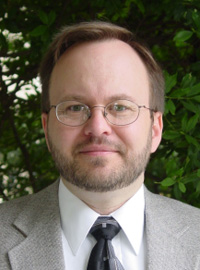Systems engineer Paul Componation joined Iowa State’s industrial manufacturing and systems engineering faculty this fall with plans to use his 15 years of academic experience to help grow several engineering graduate programs.
Growing up in West Virginia, Componation spent his teen years building and fixing various things at home with his family. So it wasn’t a big surprise that industrial engineering seemed like the most natural route for him when he began his undergraduate studies at West Virginia University (WVU).
He received his bachelor’s degree from WVU in 1981 and then joined the Air Force, spending the next four years in Europe working as an engineering officer. During his time overseas, he attended Troy State University in Heidelberg, Germany, where he obtained a master’s degree in science and management.
“The master’s program had a lot of engineers from all the North Atlantic Treaty Organization (NATO) countries, which helped me learn about how different people approach problems in their countries and the cultural influence on the way they solve things,” Componation explains.
After returning from Europe, Componation spent a few years in the manufacturing industry before returning to WVU to get his doctorate in 1995. He then went to the University of Alabama (UA) where he has since been working in the defense and aerospace departments.
He taught several system engineering and management courses at UA, focusing on how multidisciplinary teams are organized and managed, and integrating those ideas into building and designing complex systems.
“It is hard to make these complex systems work efficiently if you are only focusing on one area of engineering,” says Componation. “I like systems engineering because it takes bits and pieces from all the disciplines and puts them together, giving you a more comprehensive result.”
During Componation’s appointment at UA, he was commissioned by NASA to support the “return to flight” effort after the Space Shuttle Columbia disaster in 2001. He and a large team of researchers from diverse backgrounds were brought together to devise a solution for preventing ice build-up on the shuttles’ external tanks. Although it was difficult to balance the views of so many people from different disciplines, Componation regards the NASA project as his favorite thus far.
“I worked with a lot of talented people in a high-pressure environment,” he explains. “But it was fun taking on such a tough, technical problem, especially since NASA turned us loose to find a solution.”
Motivated by challenges, Componation is excited to begin his career at Iowa State, which will start with him teaching an engineering economy course, a topic he feels will be extremely valuable to the future of his students.
“People will always want to know if every idea you devise is affordable,” says Componation. “Even if it is the perfect solution, if it’s not affordable, no one will allow it.”
Componation will also be very involved in graduate programs. He hopes to build the systems engineering graduate program by developing two classes that focus on decision analysis and system life cycle costs. In addition, he looks forward to supporting a new, recently proposed IMSE graduate program.
These sorts of opportunities are why Componation is so enthused about joining the faculty.
“Iowa State has a lot of strong engineering and science programs, and systems engineering is about integrating all those programs together,” he says.
“Not to mention, Iowa State is playing West Virginia this year and I’m ready to see the Mountaineers in action again.”
